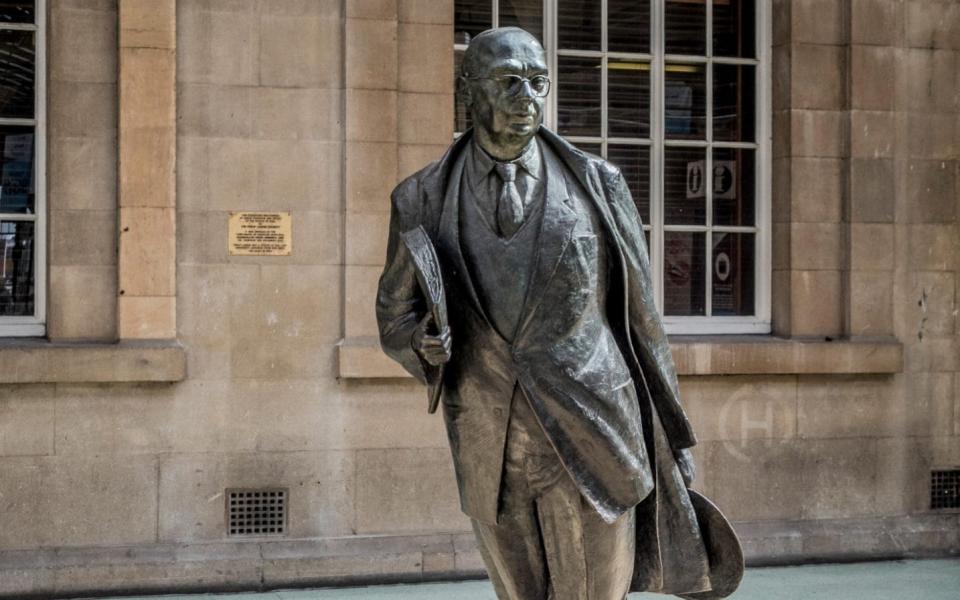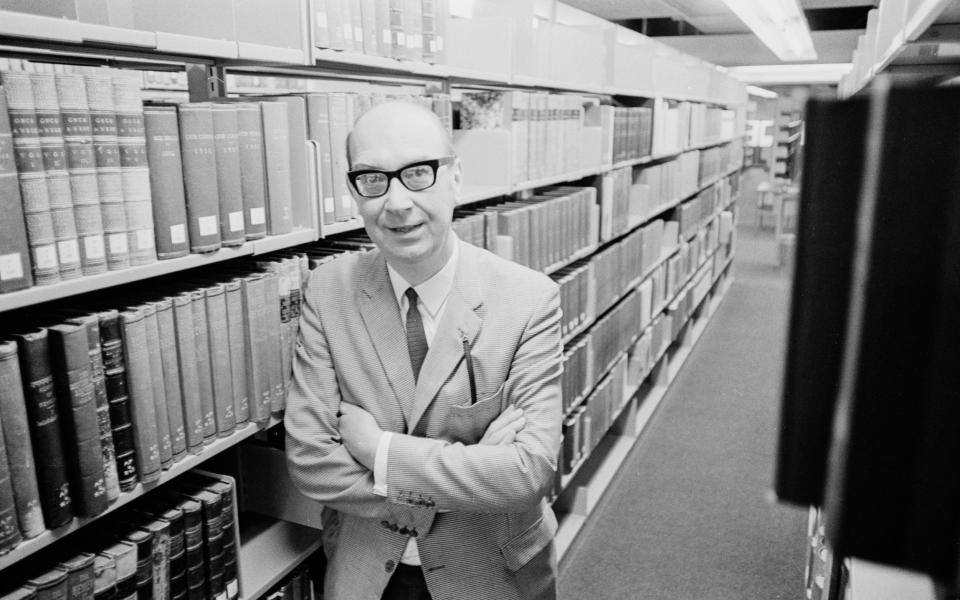Philip Larkin statue placed on secret racism review's list following Black Lives Matter protests

- Oops!Something went wrong.Please try again later.
Poet Philip Larkin has been cited in a secret racism review carried out by a council after officials admitted they could not be seen to be doing "nothing" in the wake of Black Lives Matter protests.
Emails seen by The Telegraph shared among staff at Hull City Council reveal how they quietly began compiling a list of "major statues of concern" in the city.
Officials stressed the secret list, carried out "behind the scenes", would only be made public if they were directly approached.
But The Telegraph's revelation that Larkin's name was on the list has provoked outrage among his supporters. His biographer James Booth declared: "Anyone who reads only Larkin's published poems will find no trace of racism."
Larkin, who died in 1985, was honoured with a statue in the city in 2010. He moved there in 1955, and worked as a librarian while penning verse which earned him an offer to become poet laureate.
He was part of the mid-century “Movement” of writers along with his friend Kingsley Amis, and rose to prominence for work like The Whitsun Weddings and poems such as "An Arundel Tomb", which is often studied in schools.
But seven years after his death in 1992, publication of his correspondence, titled Selected Letters, caused a re-evaluation of his reputation by revealing personal views on race and the use of racial epithets, including stating there were “too many f------ n------ about”.
In documents seen by The Telegraph, officials warned that a racism review of Larkin could cause a public backlash, and asked colleagues to “tread carefully” as holding unpalatable views “does not equate to being a slave trader”.
Dissenting staff arguing via email stated that: “Lumping Larkin into any discussion about slave trading etc is not helpful to anyone.”
His statue, pictured below, was added to an initial list of monuments, including those for Mahatma Gandhi, King William III, and fellow poet Andrew Marvell.

Zachariah Pearson, who tried to trade cotton with the slave-owning Confederate States, was also named, alongside Queen Victoria.
Council officials, however, explained to concerned colleagues: “All this needs to be done sensitively. It is important we are reviewing things behind the scenes.
“We are not publicising any of this unless directly approached as [I] agree sometimes raising an issue creates the problem.
“But if asked, and we said we had done nothing, I think [it] would raise concerns in the current climate.”
Council staff arguing over email stated that Larkin was a “complicated” figure and many in Hull “recall him with affection” for his time working at the Brynmor Jones Library, pictured below.

Others argued that: “We do need to be clear and careful, and recognise that views unpalatable to us may not detract from achievements.”
But with Larkin likely to be in the spotlight with centenary celebrations of his birth approaching in 2022, it was suggested the council should ensure that “if challenged” by activists they could “reflect the current recognition of what practices are no longer acceptable”.
This “subtle” work would first be done by updating information on the contentious figures listed, including Larkin, to “recognise some of their shortcomings”.
Officials added: “This way we aren’t rewriting history but just highlighted some of their deficiencies when we look back against today’s standards.”
Mr Booth told The Telegraph that Larkin had “omnivorous empathy”, adding: “[He] Would have felt mortified by the posthumous criticism of his 'racism', and to an extent ashamed.
“He was a fundamentally decent and compassionate man and there is no record of him ever acting on a racist impulse.
“The offensive comments in his letters were meant to be read by a small number of correspondents only. He would be mortified to know that his words were causing hurt to vulnerable readers for whose ears they were not intended.
“Anyone who reads only Larkin's published poems will find no trace of racism.
“Most of his rich and varied correspondence can give no offence. But, at the extreme, there are letters in which he shares with Monica Jones, Kingsley Amis, Robert Conquest and Colin Gunner the casual racism common in post-war England.”
Hull City Council have been contacted for comment.

